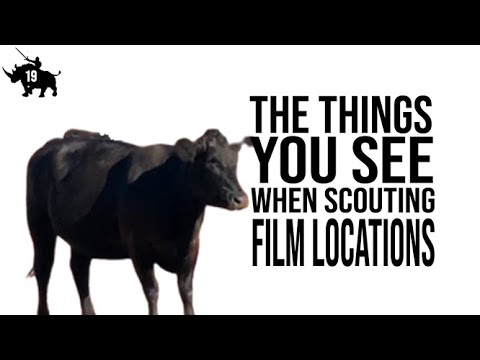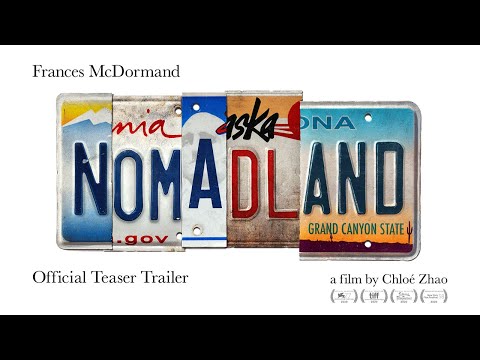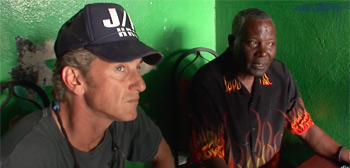Interview With The Nelms Brothers, Directors Of FATMAN
Ho, ho, hand grenade.
Fatman – longtime passion project from indie family filmmakers the Nelms Brothers – is not your traditional holiday movie. Sure, a lot of the same pieces are there: a puffy man with a long white beard, his warehouse, and his army of efficient elves. But few Christmas movies have had the gall to blow them all sky high.
Film Inquiry recently spoke with writers-directors Eshom and Ian Nelms about their experience finally finishing the film, including their collaboration with star Mel Gibson, and the film’s truly strange blend of tones.
This interview has been edited for clarity.
Luke Parker for Film Inquiry: I know this project has been on your guys’ slate for a long time now – roughly 14 years, if I’m not mistaken – and in that time, you both have done quite a lot of work together. What do you think that extra experience and firsthand knowledge brought to this production that the younger Nelms Brothers couldn’t have?
Ian Nelms: Almost every year that we’ve been working on it, we’ve been rewriting the script, so I think the script got better. On the other side of that, I think our technical skills as filmmakers got a lot better. We were able to make a lot of films that had certain things we would be using in Fatman, and then we sort of smooshed them together when we got to the project.
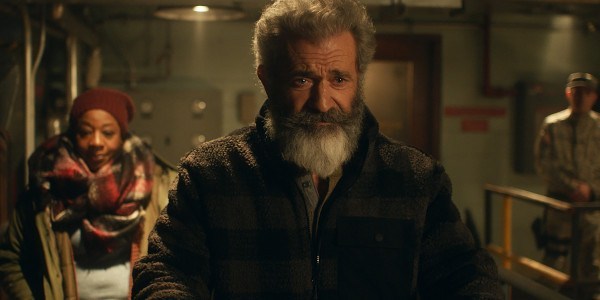
Like the shootout, and even the more dramatic stuff. You know, when you’re working with actors that have a relationship – especially with Gibson and Goggins, you don’t need to have “the hawk’s eyes” on them because they’re so damn good – learning to let them breathe is its own skill.
Eshom Nelms: It’s a cliche, but the more practice you have at your craft, the better you become at it. And I think that’s absolutely indicative of filmmaking.
Ian Nelms: Yeah, in every aspect – editing, writing, directing – the more you can do it, the more you’re going to feel comfortable, and the more you’re going to be confident in making the film you want to see.
Speaking of the script, over the 14 years of editing, what elements did you find needed the most updating? And were you surprised by any that held up?
Ian Nelms: The themes were probably the biggest surprise to us, in terms of how strong they held up. It was like the more we moved forward with the script, the more things seemed to move in symbiosis with the themes we were working with, and elevating them.
Eshom Nelms: [laughs] It seemed outlandish when we wrote some of this stuff, and then here in 2020, it’s like, “wow! I can actually see that happening!” Government entities working with Santa Claus? Yeah, I can see that happening.
If there was ever a year I thought Santa Claus could go out of business, it would be this year.
Eshom Nelms: Everyone’s hurting, you know?
[scoffs] Yeah.
So, Christmas is no stranger to violence at the movies. From productions as direct as Die Hard to some as childish as Home Alone, we’ve seen a lot of filmmakers over the years take this joyful time and paint it red, so to speak. Tell me, from a filmmaker’s perspective, what is it about the Christmas season that makes bloodying it up so exciting?
Eshom Nelms: Well, I think for us, we wanted the blood to be the crescendo of it all. Like this is the consequence of putting all these things into motion.
Do people enjoy action and a little bit of gore? Yeah.
Ian Nelms: And so do we. But really, for us, the gore is very entertaining to watch. Watching something like Die Hard or Kill Bill, something that’s gory or explicit, always seem to repel me in a way that I’m drawn to it, like a train wreck, where I want to watch it. And I don’t think there’s anything wrong with saying that. But it’s also like going to war: I don’t want that to happen to me, but I’m in a much more comfortable position to watch it and say, “that’s some heavy-duty violence, and I can feel the consequences of what’s happening.”
The gore is supposed to give you those dire consequences. We wanted you to go into the shootout and have a good time, for sure. But we also wanted you to understand the consequences of the situation.
Eshom Nelms: And the weight of that sequence.
Ian Nelms: That it really had come down to something really deep between these two characters, and that there were going to be consequences for what we had swirling at the beginning of the film.
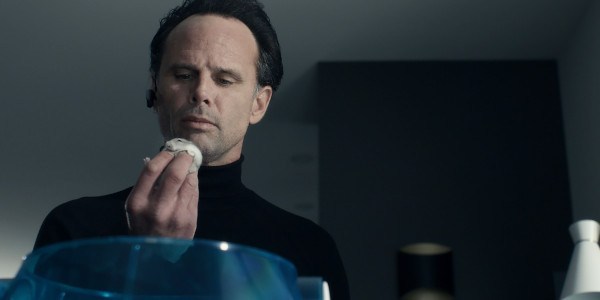
On that note, you two tasked yourselves with balancing a tricky array of tones with this film, going from outlandish and ludicrous to contemplative and even thoughtful. Can you describe the tonal direction of the film and how you were able to maintain its course?
Eshom Nelms: So for us, we just wanted to take a fantastical character story and ground it. We wanted to put that in a real-world that every person could relate to, and that’s how we approached almost every single scene.
Ian Nelms: And then as far as mixing the genres, it’s funny looking back at the script now, and even the script we did before this – Small Town Crime – it’s just our taste. It’s almost like it’s our voice, our preference.
But it’s hard to sit here and go, “we started out thinking how we were going to mesh all these genres together.” It’s really just the flavor that we like. When we look back at films that excite us or inspire us, a lot of them mix genres…like a ton.
That gets us excited. You tell a tale in a way that subverts their expectations, and we’ve tried to do that with every single story we’ve ever told.
Let’s talk about Santa for a bit, because I think everyone who even gets a whiff of this project will agree they’ve never seen a Claus quite like this. As you were piecing together this character, grounding him, realizing him, and militarizing him, what parts of the myth were you most excited to warp and play with?
Ian Nelms: For me, it was probably him as a person. I was so excited to bring out the real person in this role and put an everyday man in a fantastical situation. We loved rolling it out for the first 20 minutes and not telling you that it’s Santa. You may think it’s a Tim Allen-like tale, and that he’s going to kill somebody or hit somebody with his car and all of sudden start becoming Santa.
But 20-30 minutes in, you realize, “holy shit, this guy who was target practicing and drinking in the bar is Santa having an existential fucking crisis! Wow, I didn’t think Santa was already here.” And that forces the audience to re-evaluate where they are and who they’re dealing with. That was the most exciting thing for me when we were telling the story.
You guys were very purposeful in not showing the traditional Santa images. We never see Santa doing any of the regular Santa things. Is that part of the reason?
Eshom Nelms: We were very specific about that. We had mini conversations through multiple incarnations of the script where we decided we were more interested in the moments between what we’ve all seen before.
Ian Nelms: Yeah, when we were writing the script and thinking about shooting, we had people suggesting, “you should have Santa fly across the moon!” But I’ve seen so many movies where Santa flies across the moon. Like you can interject that yourself, you have that baggage. You don’t really want me to show you Santa flying across the moon. You want to see him come into the house after, gunshot by a little kid in Tennessee! You don’t see those moments.
Eshom Nelms: Or it’s like, instead of him flying with the deer, here’s the real world man feeding the deer.
Ian Nelms: You hear all these wonderful myths about Santa, and it’s everything from a Coca-Cola Santa to the other side of that, where Santa is Krampus. Santa is the guy in these Norwegian tales who snatches kids in the middle of the night because they weren’t good all year. And that was something these mothers told their children as a bedtime story: “you better be good because if you’re not, Father Christmas is going to snatch your ass out of bed and you’re going to be in trouble.”
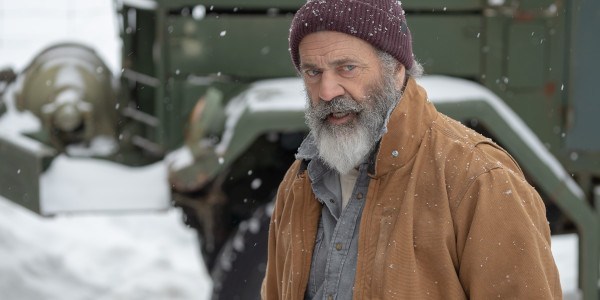
We loved that, because where does that myth come from?! How can we incorporate that into this Santa? Well, he is benevolent and he is altruistic, but he’s also a man of consequences. If you fuck around, there are going to be consequences.
Eshom Nelms: Santa has parameters, you know? There are rules.
Your Santa, Mel Gibson, also is not a stranger to violence at the movies. Over the years, he’s proven himself time and time again to be one of the most competent and consistent action directors working. So, with that in mind, was it ever weird or surreal offering him direction?
Ian Nelms: Absolutely, we just faked it the entire time! [laughs]
Honestly, yes and no. We had complete butterflies stepping into it, but he was such an amazing collaborator. First of all, he was totally game for what we were after.
Eshom Nelms: We were very synced up. On the same page.
Ian Nelms: But if he ever had a suggestion, he would always start it off by saying, “my thought, feel free to throw this away” – which makes you more, “well, what is it? Now I’m ready to hear it.” I’m sure that’s part of the strategy, but he really is that guy. He comes on set, he gives you 125%. As a collaborator, he starts making suggestions. If you take the suggestion, “great, let’s work with it.” If you don’t, “totally fine, just a thought.” He was that guy.
So he sort of takes the piss out of that and undercuts himself and says, in a great way, a very humble way, “I signed up for your movie. That’s why I’m here.” He was fantastic.
Eshom Nelms: And he was so generous with his nuggets of knowledge. I remember him telling us all about Braveheart.
Ian Nelms: And we were pumping him constantly.
Why wouldn’t you? I can’t imagine directing an Academy Award-winning director.
Ian Nelms: It was fantastic. We learned some stuff and we got to do some crazy stuff. It was a blast.
Eshom Nelms: I think the biggest advantage of working with Mel is that he understands what he needs to do as an actor to make the best environment for everybody.
Ian Nelms: True. It was -36 degrees four days in a row when we were filming that shootout. Four days in a row of -36 degrees in Ottawa. If you’re ever in that kind of cold, your hands go numb within 30 seconds outside of gloves and in eight minutes, they’re permanently frostbitten.
When we started shooting, we were dressed ready to climb Everest, and I was still complaining about the cold. But Mel was out there in his costume and his fingerless gloves – because he had to work a gun in between takes – and he would stay out there all 12-14 hours with us, no matter what the weather was like. I remember at one point, we were like, “Hey Mel, you’re cut. You can go to the warming tent.” We turn around 20-30 minutes later and he’s still standing there. We thought he didn’t hear us but he said, “if you’re out here in this, I’m out here in this.”
Film Inquiry would like to thank the Nelms Brothers for taking the time to speak with us!
Fatman is now available on Vudu, the Google Play Store, and in select theaters.
Watch Fatman
Does content like this matter to you?
Become a Member and support film journalism. Unlock access to all of Film Inquiry`s great articles. Join a community of like-minded readers who are passionate about cinema – get access to our private members Network, give back to independent filmmakers, and more.
Join now!
